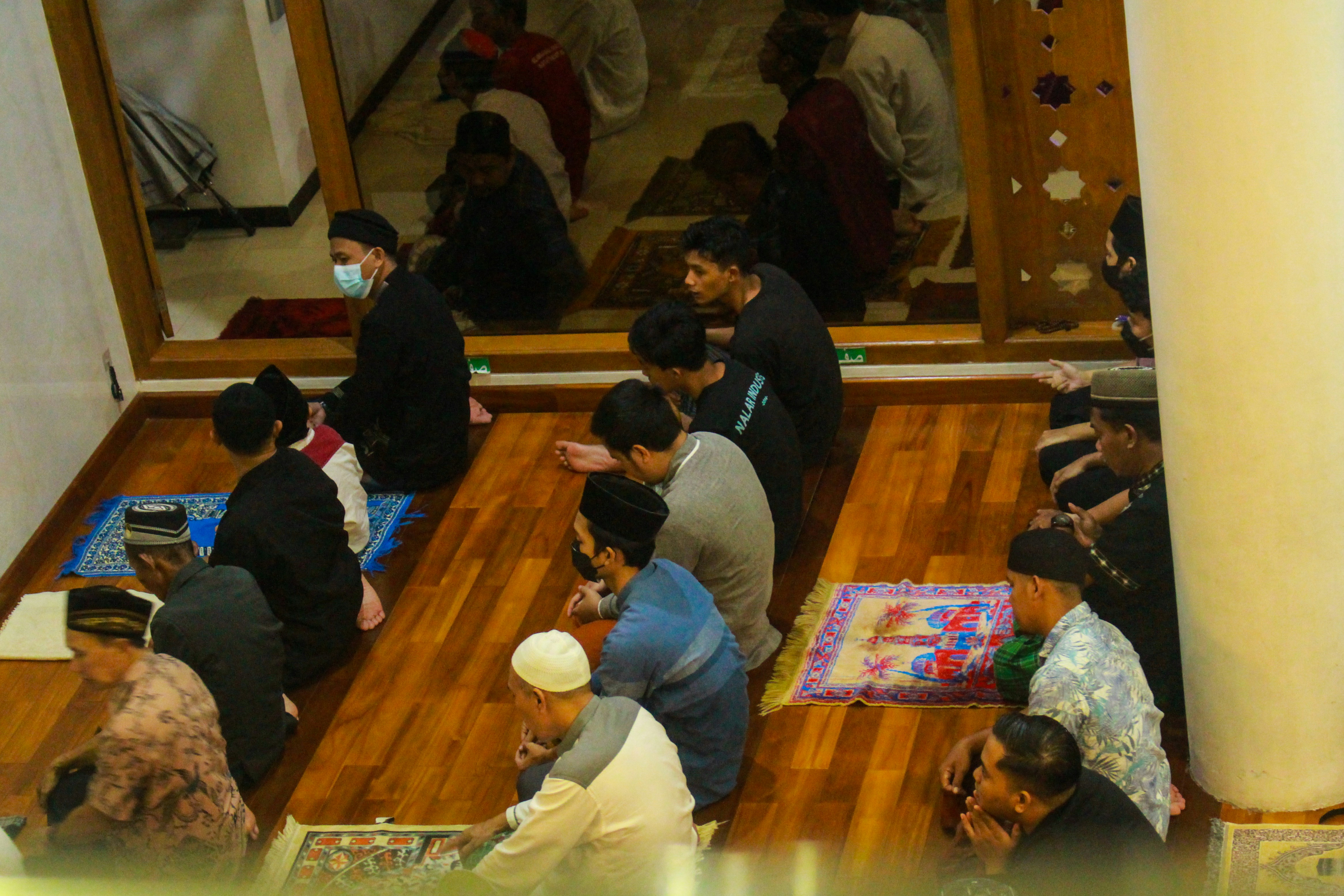
Spiritual Healing Techniques – Restoring Peace and Health
Understanding Spiritual Healing in Islam
Spiritual healing in Islam is a comprehensive approach to well-being that emphasizes the interplay between the spirit, mind, and body. Its roots are deeply embedded in the Quran and the Hadith, which provide numerous references to the significance of the soul (nafs) and its pivotal role in human health. Islamic teachings advocate that the state of an individual’s soul directly influences their physical and mental health, suggesting a holistic connection that transcends mere physical ailments.
The concept of healing encompasses not only the alleviation of physical symptoms but also the restoration of spiritual balance. The Quran serves as a vital source, offering guidance on various aspects of life, including health and spiritual enrichment. Verses that mention the importance of prayer (salah) and remembrance of Allah (dhikr) highlight how engaging in these practices can elevate one’s spiritual state, thereby positively impacting overall health. Moreover, the Hadith literature includes numerous accounts of the Prophet Muhammad’s practices and recommendations for seeking healing, reinforcing the Islamic perspective that faith plays a crucial role in the healing process.
In addition to prayer and spiritual practices, Islamic healing also acknowledges the role of community support and social ties in maintaining one’s well-being. Seeking help from others, sharing burdens, and fostering compassionate relationships are all encouraged within the Muslim faith. This communal aspect of healing reflects the understanding that emotional and psychological struggles are often interlinked with social dynamics and spiritual health. Thus, Islamic spiritual healing techniques promote a multifaceted approach to health, integrating physical healthcare, mental support, and spiritual practices into one holistic framework.
Overall, the significance of spiritual healing in Islam underscores a profound understanding of health that extends beyond the physical realm, reaffirming the belief that nurturing the soul is as crucial as attending to the body and mind.
The Power of Prayer (Salah) and Supplication (Dua)
In the rich traditions of Islam, Salah (prayer) and Dua (supplication) stand as fundamental practices that not only shape the spiritual landscape of a believer’s life but also significantly contribute to mental clarity and emotional peace. Engaging in Salah five times a day serves as a structured framework that instills discipline, encourages mindfulness, and establishes a sense of routine. Each movement within Salah—from the physical postures to the recitations of Qur’anic verses—facilitates a state of focus, allowing individuals to momentarily disconnect from worldly distractions. This focused attention provides an avenue for reflection and fosters an enhanced connection with Allah, promoting overall well-being.
Furthermore, the psychological benefits derived from regular Salah can be likened to forms of spiritual therapy. Engaging in this sacred ritual enables practitioners to cultivate a sense of belonging and support, which are vital components for emotional health. The state of tranquility experienced during prayer can lead to significant reductions in anxiety levels, providing practitioners with tools to manage stress effectively. It reinforces the concept of surrendering one’s worries and burdens to Allah, which itself is a powerful mechanism for alleviating mental strain.
Dua, on the other hand, acts as an intimate dialogue with Allah, fostering a unique relationship that nurtures the heart and soul. Through supplication, individuals express their innermost thoughts, desires, and fears, thus allowing an emotional release that can be liberating. It offers a chance for believers to seek guidance and find solace in their struggles, further promoting an internal sense of calm. Together, Salah and Dua intertwine to create a holistic approach to spiritual and emotional healing, reinforcing the importance of maintaining one’s inner peace and mental clarity in a complex world.
Quranic Verses and Healing: A Therapeutic Approach
The Quran serves as a profound source of spiritual guidance, offering verses that many believe possess healing properties for both the body and the mind. Numerous Quranic verses emphasize the importance of seeking refuge in God’s words for relief from suffering and distress. Among these, verses like Surah Al-Fatihah, Surah Al-Ikhlas, and Surah Al-Nas are frequently recited for their comforting and protective qualities. The rhythmic recitation of these verses is not only a form of worship but also acts as a therapeutic tool that promotes a sense of peace and tranquility.
Incorporating Quranic verses into daily life can be beneficial for individuals facing various challenges, including physical ailments and emotional turmoil. For example, reciting Surah Al-Fatihah, often referred to as the opening chapter of the Quran, is recommended for invoking healing and guidance. Its message encapsulates the essence of seeking divine assistance, making it a cornerstone of spiritual healing in Muslim practice. Regular recitation can help to align one’s thoughts and intentions with a sense of serenity and purpose.
Ruqyah: The Islamic Healing Rituals
Ruqyah is a profound and traditional Islamic practice that serves as a spiritual healing mechanism, drawing upon the sacred texts of the Quran and supplications to provide protection and alleviate distress. This ritual involves the recitation of specific Quranic verses and authentic prophetic prayers, believed to possess divine healing properties. Rooted in the teachings of Islam, Ruqyah is often employed to address various issues, including physical ailments, emotional turmoil, and spiritual afflictions attributed to negative influences, such as jealousy or witchcraft.
The significance of Ruqyah within Islamic faith extends beyond mere ritual; it embodies a holistic approach to healing, emphasizing the interplay between spiritual well-being and physical health. Muslims believe that the recitation of Quranic verses not only acts as a form of protection but also facilitates a deep connection with the Creator. Through sincere intention and faith, practitioners seek to invoke Allah’s mercy and assistance, creating an environment conducive to healing and tranquility.
Ruqyah can manifest in different forms, tailored to the individual’s specific needs. For instance, it may be performed by a knowledgeable practitioner or conducted by the afflicted person themselves in the comfort of their home. This flexibility allows individuals to engage with the practice as they see fit, whether through group sessions, personal recitations, or even written translations of the Quranic verses. Importantly, practitioners emphasize the importance of following Islamic guidelines while performing Ruqyah, ensuring it aligns with Islamic teachings and avoids any practices that could compromise one’s faith.
Ultimately, Ruqyah serves as a reminder of the profound spiritual dimensions of healing in Islam, reinforcing the belief that faith, combined with the recitation of sacred texts, can lead to restoration of peace and health for individuals facing life’s numerous challenges.
Importance of Cleanliness and Hygiene in Islam
In Islam, the significance of cleanliness and hygiene is deeply rooted in both spiritual and physical practices. The relationship between physical cleanliness, spiritual purity, and overall well-being is central to the Islamic faith. The concept of cleanliness is not merely a matter of personal hygiene; it reflects a broader holistic approach to health that encompasses the mind, body, and spirit. One of the foundations of this practice is Wudu, or ablution, which emphasizes the necessity of physical purity before engaging in prayers and other acts of worship.
Wudu is performed by washing specific parts of the body, including the hands, mouth, nostrils, face, arms, head, and feet. The ritual serves not only as a means of achieving physical cleanliness but also as a method for cleansing the heart and mind. This practice underscores the belief that physical cleanliness enables spiritual clarity, allowing individuals to connect more deeply with their faith during prayers. Beyond personal rituals, maintaining a clean environment is considered essential. The Prophet Muhammad (peace be upon him) stated that “cleanliness is half of faith,” indicating that a clean living space enhances one’s spiritual state and reflects an adherence to Islamic values.
Moreover, cleanliness extends to dietary practices, where consuming halal and hygienic food is imperative for maintaining both physical health and spiritual well-being. The alignment between physical hygiene and spiritual purity echoes in many aspects of daily life in Islam, emphasizing that neglecting cleanliness can lead to both spiritual and physical consequences. The holistic approach to health in Islam therefore necessitates the integration of cleanliness and hygiene as fundamental components not only for personal well-being but also for fostering a community that thrives on shared values of purity and health.
The Role of Community and Support in Healing
Community plays a pivotal role in the process of healing within the Muslim faith, significantly affecting both mental and physical well-being. The support derived from social connections often acts as a powerful catalyst for recovery, providing individuals with a sense of belonging and understanding during their challenging times. In times of distress, communal prayers, or ‘Dua,’ create an environment where individuals can come together to seek divine assistance while fortifying their emotional resilience through shared experiences.
Shared spirituality in a community setting can have transformative effects. Participating in congregational prayer or attending gatherings leads to a collective energy that enhances individual healing journeys. The bonds formed within the community support structures foster a sense of security, making individuals feel less isolated in their struggles. This social interconnectedness promotes a collective sense of hope and encouragement, which is essential for mental health recovery. Furthermore, discussions that arise during these communal activities often provide valuable insights and differing perspectives that can illuminate the path towards healing.
Moreover, being part of a supportive community allows individuals to share their stories and experiences. This sharing process normalizes their feelings and challenges, reducing the stigma associated with mental health issues. It cultivates an atmosphere where seeking help is encouraged, thus paving the way for professional interventions when necessary. Community support often extends beyond emotional encouragement; practical support in the form of meals, visits, or assistance for medical appointments further illustrates how collective efforts can significantly enhance an individual’s healing process.
In essence, the roles of community and social support in healing are indispensable. They not only provide a framework for spiritual growth but also underscore the importance of collective accountability in fostering health and well-being. Recognizing the impact of these connections is fundamental in promoting a holistic approach to healing within the Muslim community.
Mindfulness and Meditation within Islamic Practices
Mindfulness and meditation are integral components of various religious traditions, including Islam. Within the Islamic framework, these practices manifest prominently through techniques such as Dhikr, which translates to the remembrance of Allah. This form of remembrance serves not only as an act of devotion but also as a profound method for fostering inner peace and mental clarity. Engaging in Dhikr allows individuals to center their thoughts on spirituality, cultivating a deeper connection with the divine and promoting overall mental well-being.
The repetitive nature of Dhikr can induce a meditative state, allowing practitioners to focus their attention and attain a serene mental environment. By consciously reciting phrases that glorify Allah, individuals redirect their thoughts away from daily stressors and distractions, creating a sanctuary of tranquility within their minds. This mindful engagement has been noted to enhance emotional balance, helping individuals to manage stress more effectively. The rhythmic recitation inherent in Dhikr can be likened to traditional meditation practices found in various cultures, which emphasize breath control and repetitive mantras as pathways to mindfulness.
Moreover, research has illuminated the tangible benefits of such practices on mental health. Regular engagement in mindfulness techniques helps reduce symptoms of anxiety and depression, leading to improved psychological resilience. Islamic meditation practices, particularly those rooted in Dhikr, foster a sense of community and belonging as they are often practiced in groups, enhancing their impact on emotional stability. Participants not only find solace through individual reflection but also derive support from communal ties, reinforcing the importance of collective spirituality in achieving emotional balance.
Incorporating mindfulness through Islamic practices such as Dhikr can therefore serve as a powerful tool for individuals seeking to restore peace and enhance their mental health. The therapeutic benefits rooted in these traditions underline the importance of integrating spirituality within the realm of personal well-being.
The Contribution of Islamic Herbal Remedies
Islamic herbal remedies have played a significant role in traditional healing practices for centuries, drawing from a wealth of knowledge documented in Islamic texts and the practices of renowned Islamic scholars. Herbal medicine in the Islamic tradition is not merely an alternative remedy; rather, it serves as a complementary approach to spiritual healing techniques, aiming to restore both physical health and inner peace. The integration of natural treatments is rooted in the belief that addressing the mind, body, and spirit collectively leads to holistic well-being.
Several plants and substances have been highlighted in Islamic tradition for their medicinal properties. Among these, black seed (Nigella sativa) is frequently mentioned in Hadith literature as a remedy for various ailments. Known for its anti-inflammatory and antioxidant benefits, it has been utilized for both physical and spiritual ailments, showcasing the interconnectedness of healing in Islam. Similarly, honey, often referred to as a therapeutic substance in the Quran, is recognized for its healing qualities, including its role as an antimicrobial agent and its soothing properties for digestive issues.
Herbal remedies extend beyond single plants; they often involve combinations designed to enhance their overall efficacy. For example, a mixture of various herbs may be recommended to increase vitality or alleviate stress, all while promoting a sense of tranquility. This is particularly relevant in today’s fast-paced society where stress and anxiety are prevalent. Utilizing these natural treatments, individuals can harness the blessings of Allah in their pursuit of health while nurturing their spiritual connection.
Incorporating Islamic herbal remedies into daily life can provide significant benefits. Whether through dietary adjustments or employing topical applications, these remedies are easily accessible and can serve as a first line of defense against common ailments. The emphasis on using natural treatments encourages a return to a balanced lifestyle, affirming the essential link between one’s physical state and spiritual wellness.
Integrating Spiritual Healing Techniques into Daily Life
Incorporating spiritual healing techniques into daily life can serve as an essential foundation for achieving physical and emotional well-being. One of the simplest ways to start is by establishing a routine that incorporates daily meditation or mindfulness practices. Setting aside a few moments each day for reflection can help cultivate a sense of inner peace and balance. Consider dedicating time each morning or evening to engage in deep breathing exercises or focused meditation, allowing thoughts to settle and paving the way for a more centered day.
Another vital aspect is fostering a holistic lifestyle through healthy eating and physical activity. Consuming wholesome foods, rich in nutrients, not only benefits the body but also supports mental clarity and emotional stability. Integrating nourishing meals with regular physical exercise, such as yoga or walking, can enhance the body-spirit connection. These activities can provide an avenue for releasing stress and channeling energy in a positive manner, reinforcing the benefits of spiritual healing techniques.
Moreover, nurturing relationships and community ties can play a crucial role in spiritual growth. Engaging with friends and family, participating in group activities, or joining community gatherings can create a sense of belonging and support. Sharing experiences and wisdom with others fosters emotional well-being and encourages the practice of collective spiritual healing techniques, thus amplifying their effects.
Additionally, it is important to remain diligent in practicing gratitude. Keeping a gratitude journal or simply taking a moment each day to reflect on the aspects of life for which one is thankful can greatly influence outlook and emotional health. This practice enhances awareness of the positive elements present in daily life, aligning with the principles of spiritual healing.
By integrating these spiritual healing techniques into daily routines, it becomes possible to cultivate a more balanced and fulfilling life. The commitment to enhancing both physical and emotional health through consistent practices can create an enriching environment for continued personal growth and well-being.


